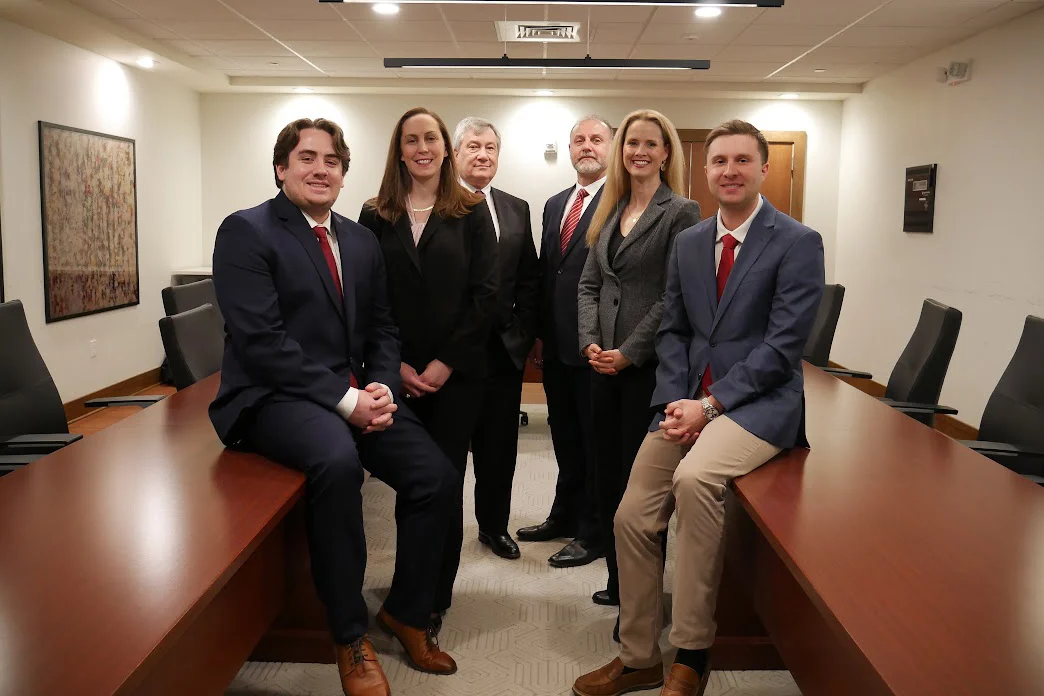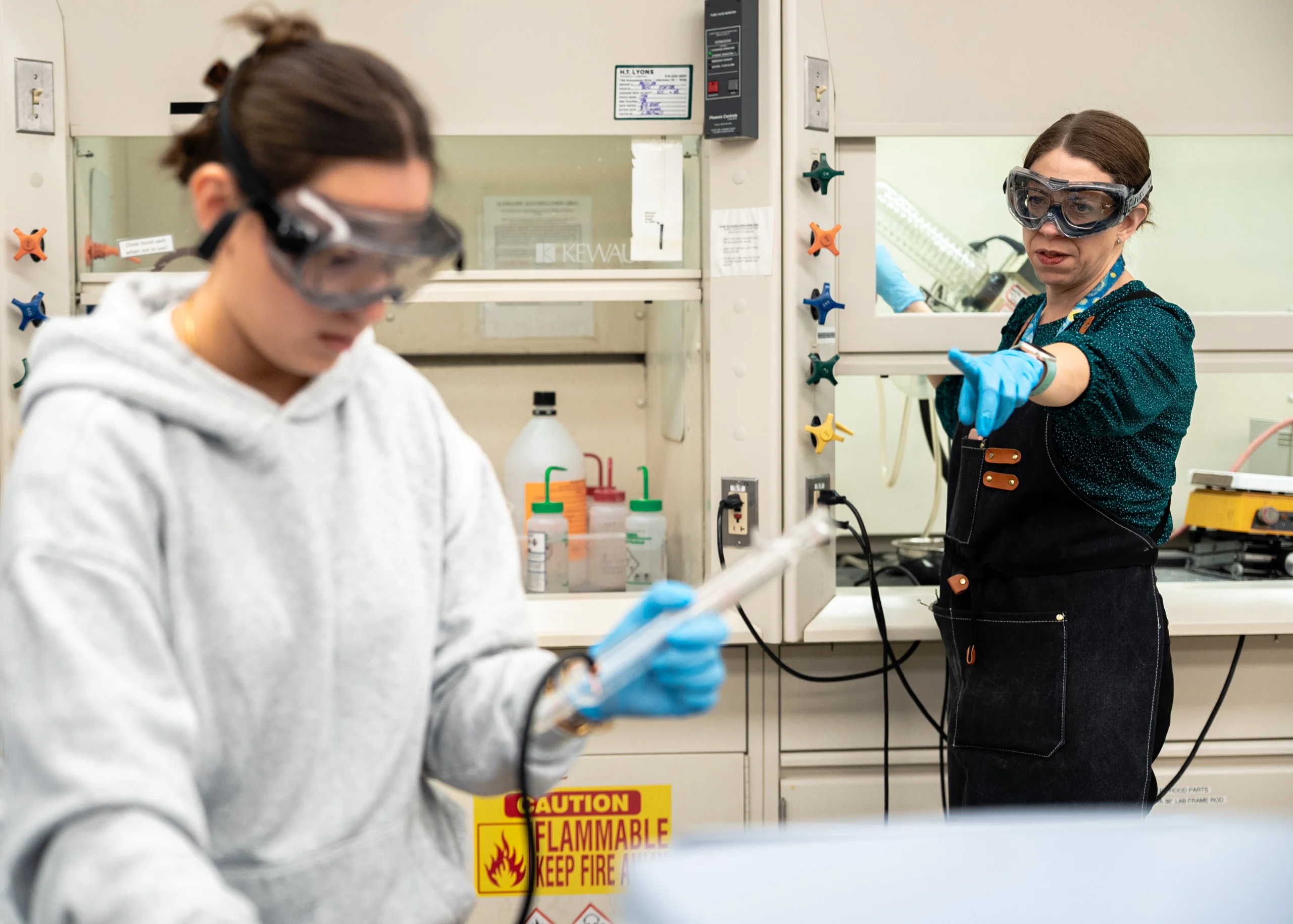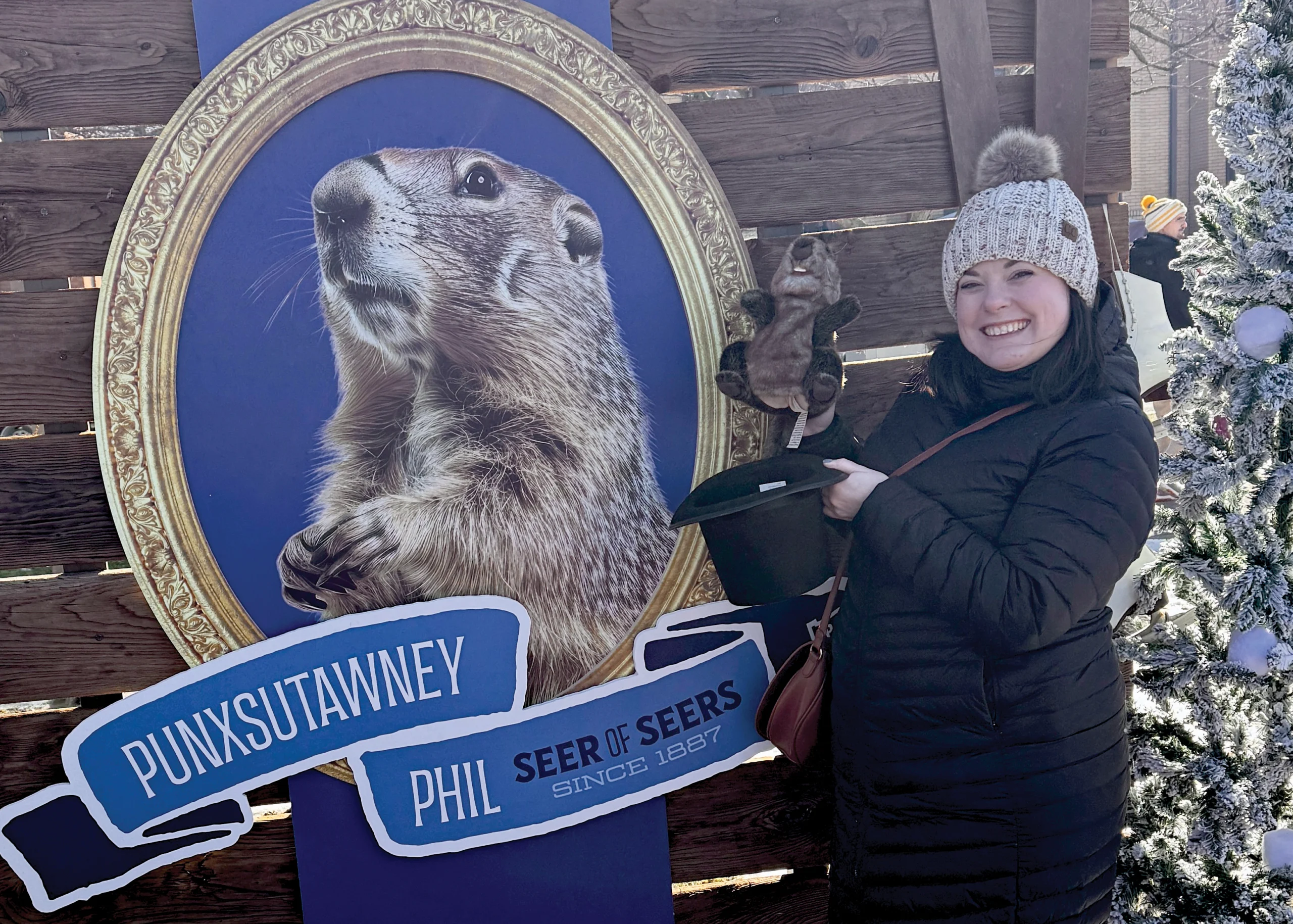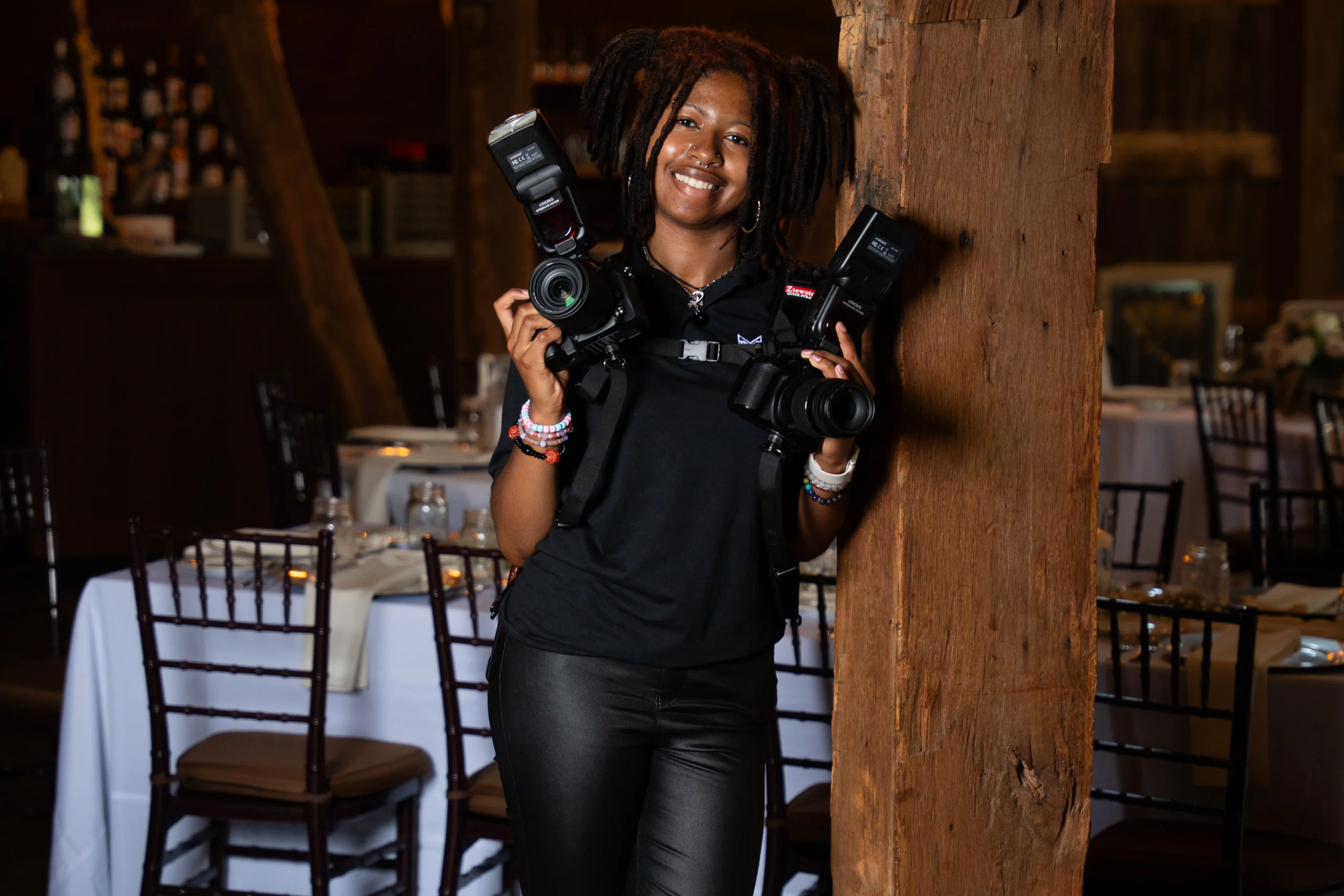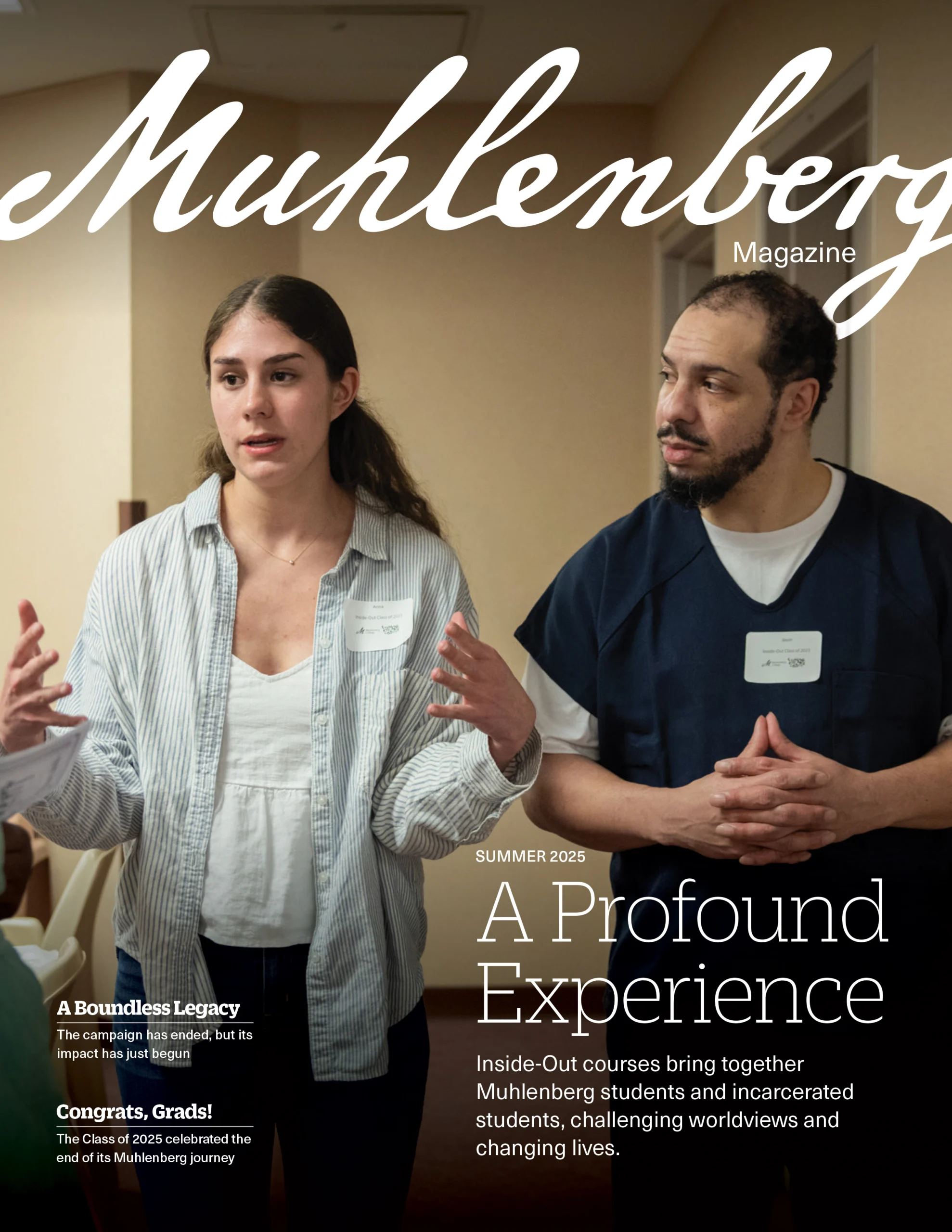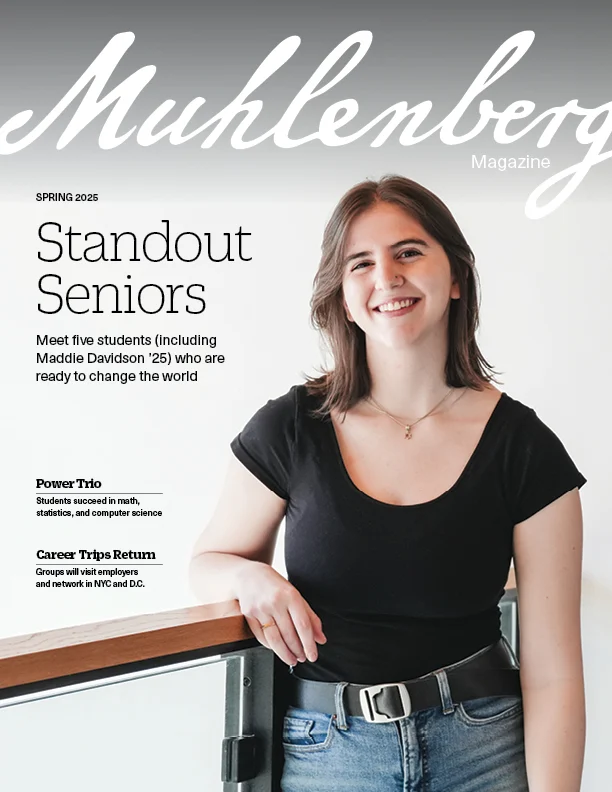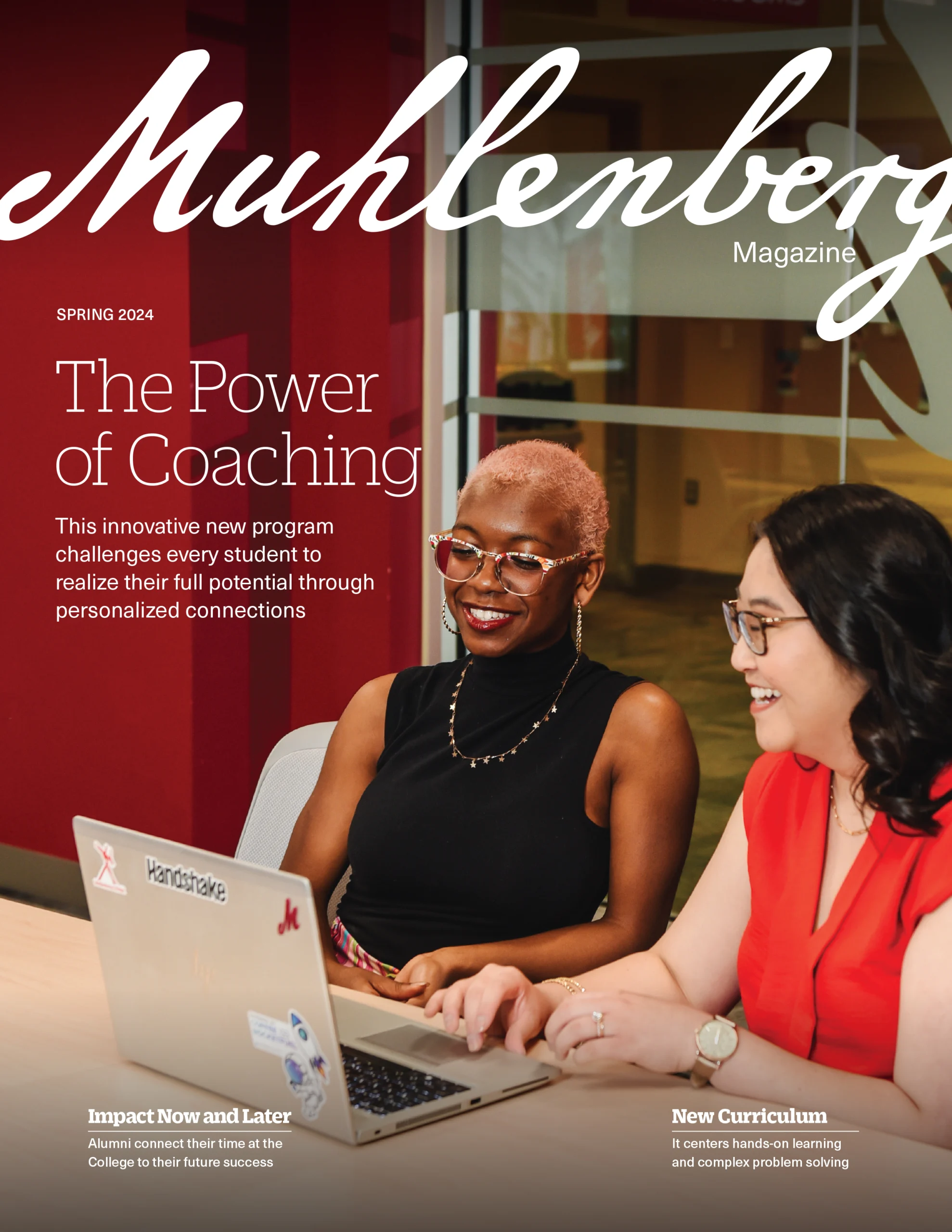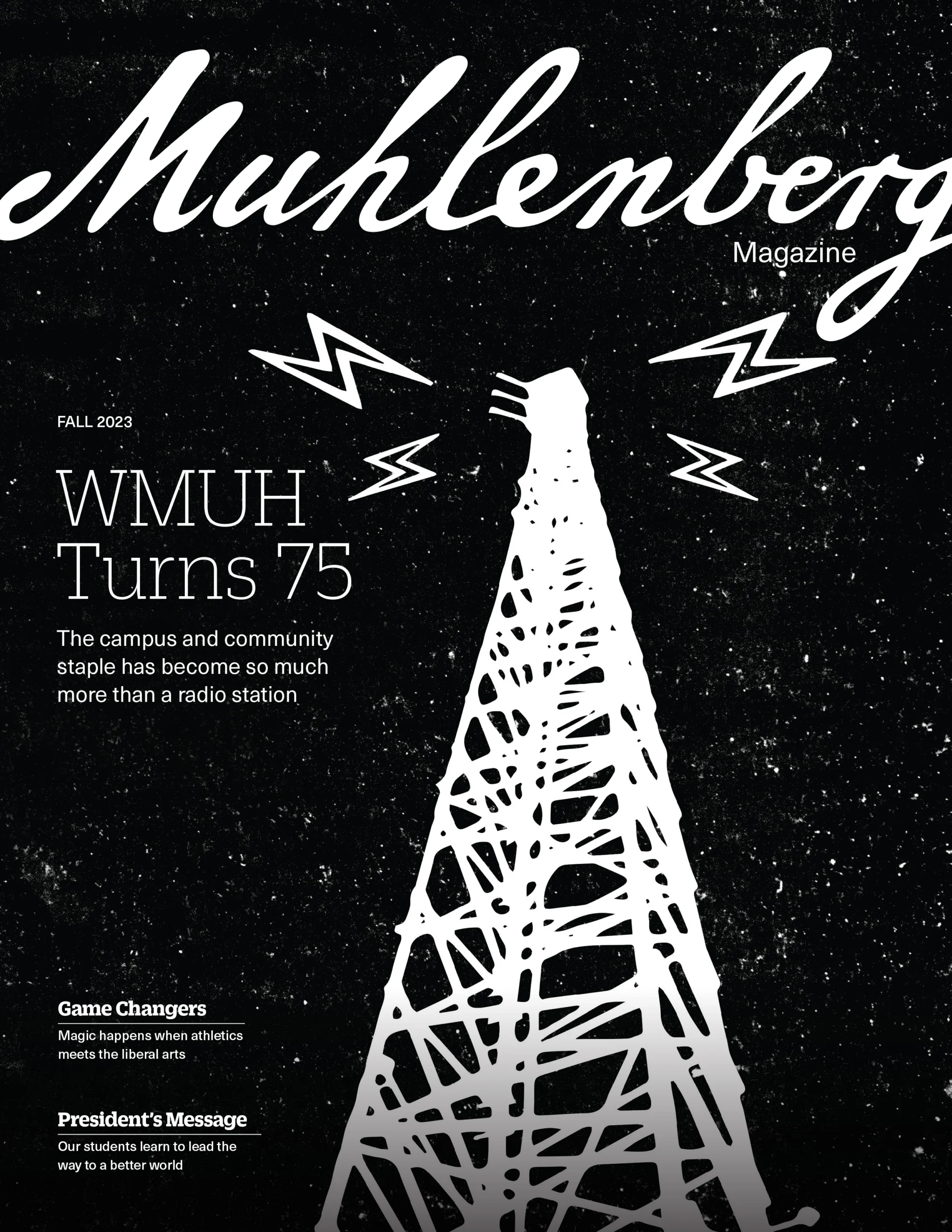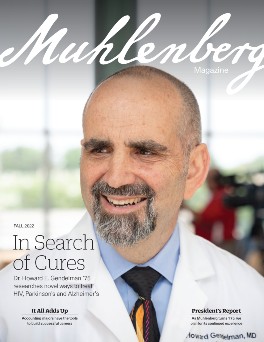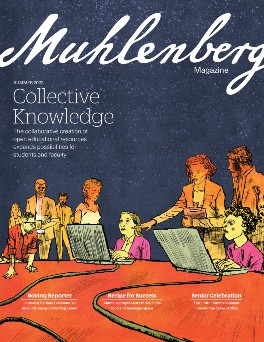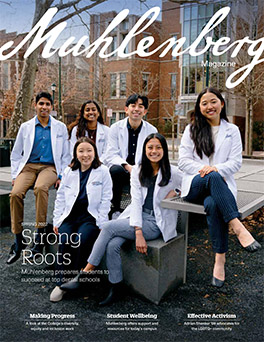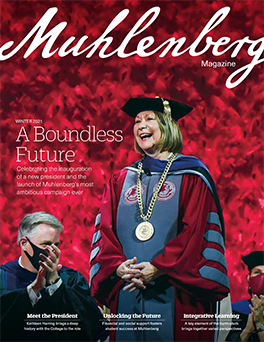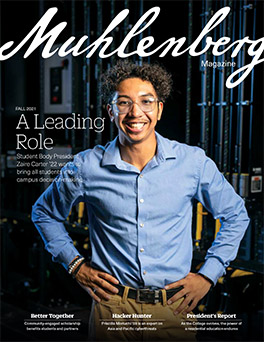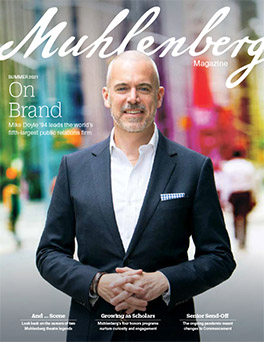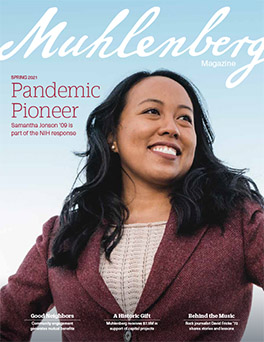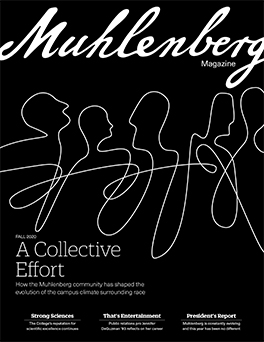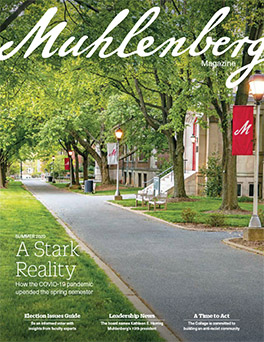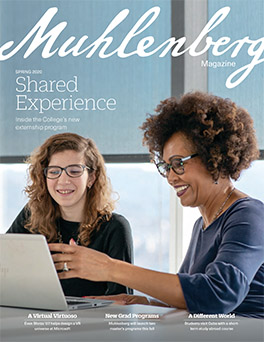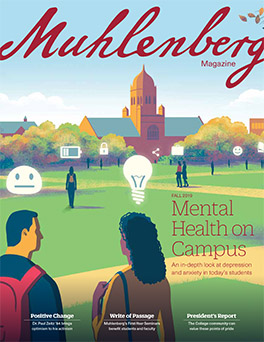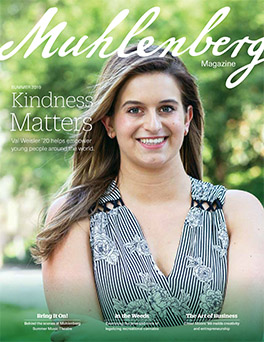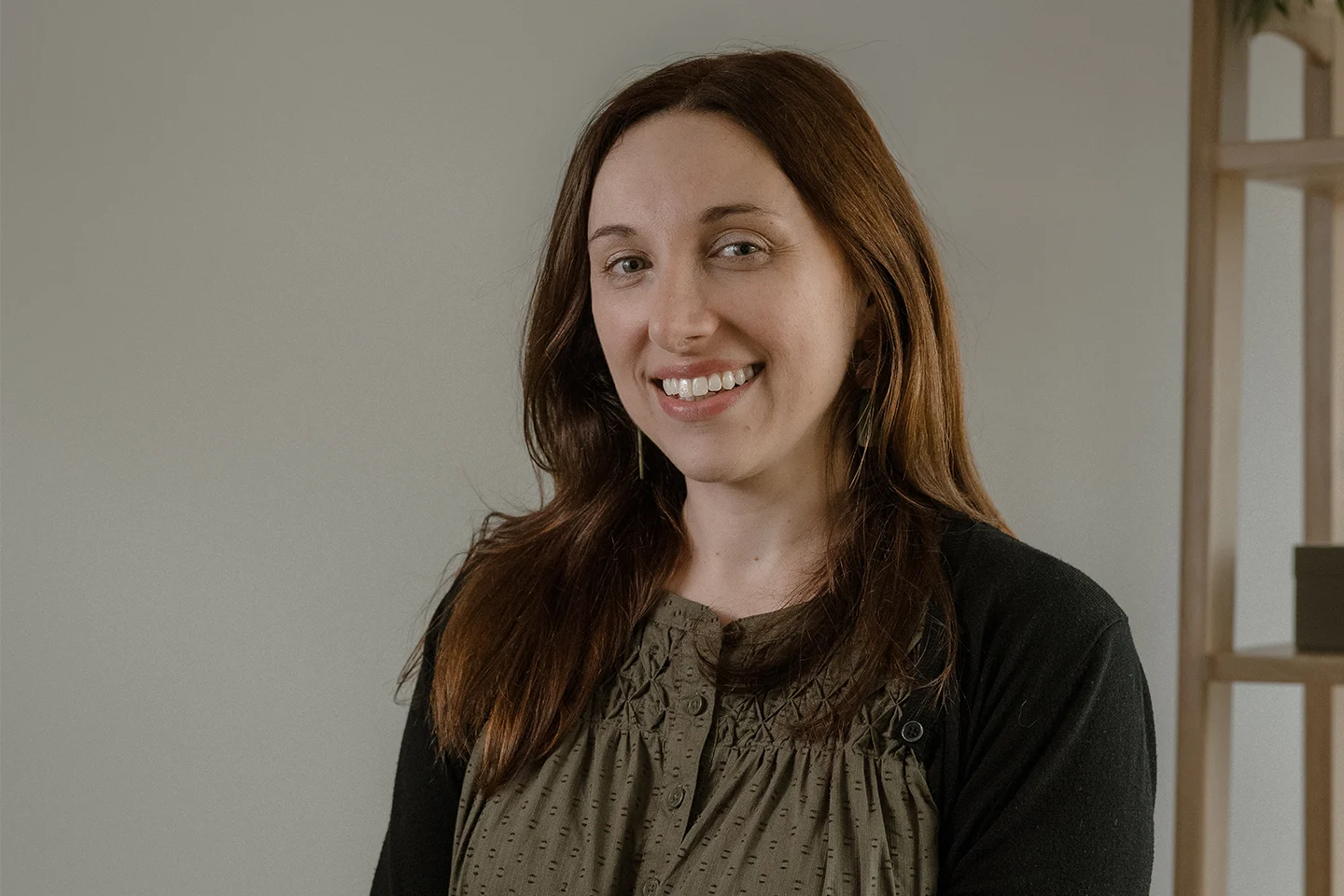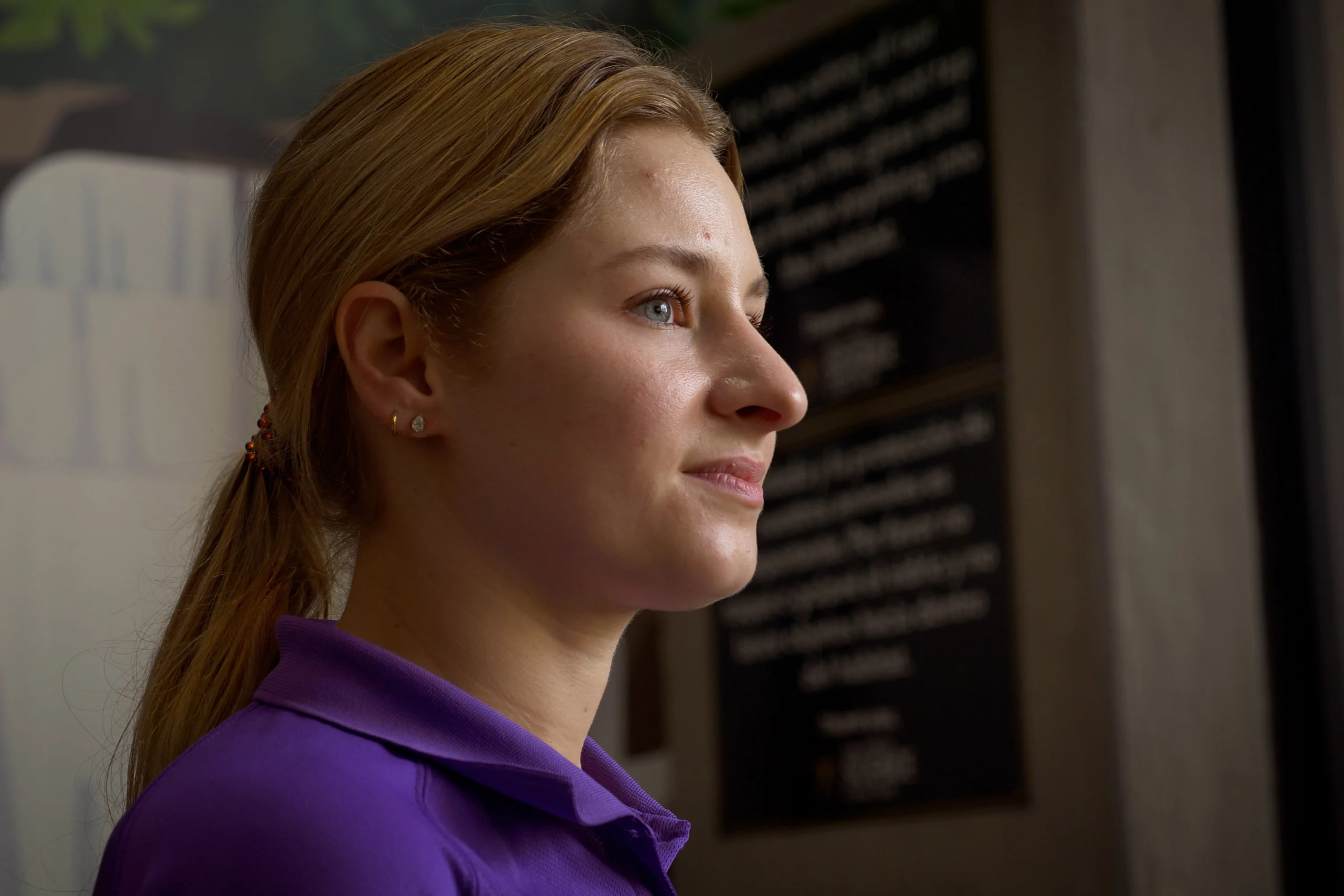
Back to ’Berg
These student-athletes used their extra year of eligibility to compete for their teams while pursuing master’s degrees from the School of Graduate Studies.
The Muhlenberg softball team had just lost to Gettysburg in the 2024 Centennial Conference championship series, and as the seniors shared tearful hugs on the field, saddened by the end of their careers, one of them decided that she wasn’t quite done yet.
Before the team boarded the bus for the long ride back from Washington College, Gillian Zack ’24 G’26 told Head Coach Sarah Leavenworth that she would be playing for the Mules as a graduate student in 2025.
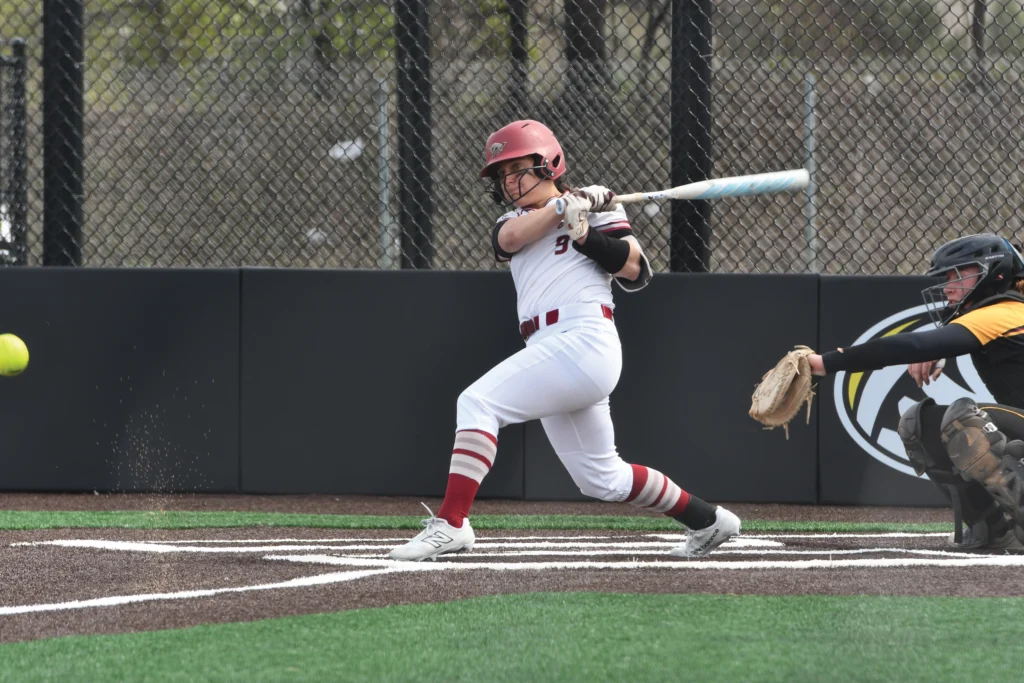
“I knew I wanted to go to grad school,” says Zack, who is working toward a master’s in organizational leadership (MOL) with a concentration in human resource management in Muhlenberg’s School of Graduate Studies. “I just didn’t know if that was going to be at Muhlenberg or somewhere else. It was right after that game that I decided. It was a mix of things. Definitely losing made me want to come back, but I also think that it was wanting to play for Muhlenberg again and not going and playing for a different team. There [are] just so many great people at Muhlenberg.”
Zack is one of many Mule athletes who, due to COVID, had remaining eligibility when they earned their undergraduate degrees and elected to extend their careers as grad students. Some transferred to other institutions, but for others, the ability to continue pursuing athletic goals with coaches and teammates they already knew and trusted, as well as small class sizes and strong faculty relationships that mirror the undergrad experience, was too much to pass up.
“I also think that it was wanting to play for Muhlenberg again and not going and playing for a different team. There [are] just so many great people at Muhlenberg.”
—Gillian Zack ’24 G’26
“After the way my senior season ended, it kind of was a no-brainer to come back to compete in wrestling again,” says Joey Lamparelli ’24 G’26, a 2023 Division III All-American whose 2024 season finished with a loss in the bout that would have earned him a return trip to nationals. “But it also felt like kind of a no-brainer to go back to Muhlenberg. I’m the kind of a person who needs to be somewhere where I feel comfortable.”
Lamparelli, who is also in the MOL program and hopes to eventually manage a business, ended his grad season on the mat in a more satisfying way, winning his final bout and becoming only the third wrestler in program history to reach 100 career wins.
And as for his graduate school experience? “It’s definitely putting me on a good path,” he says. “All the professors are very helpful. They make you think outside the box and they push us.”
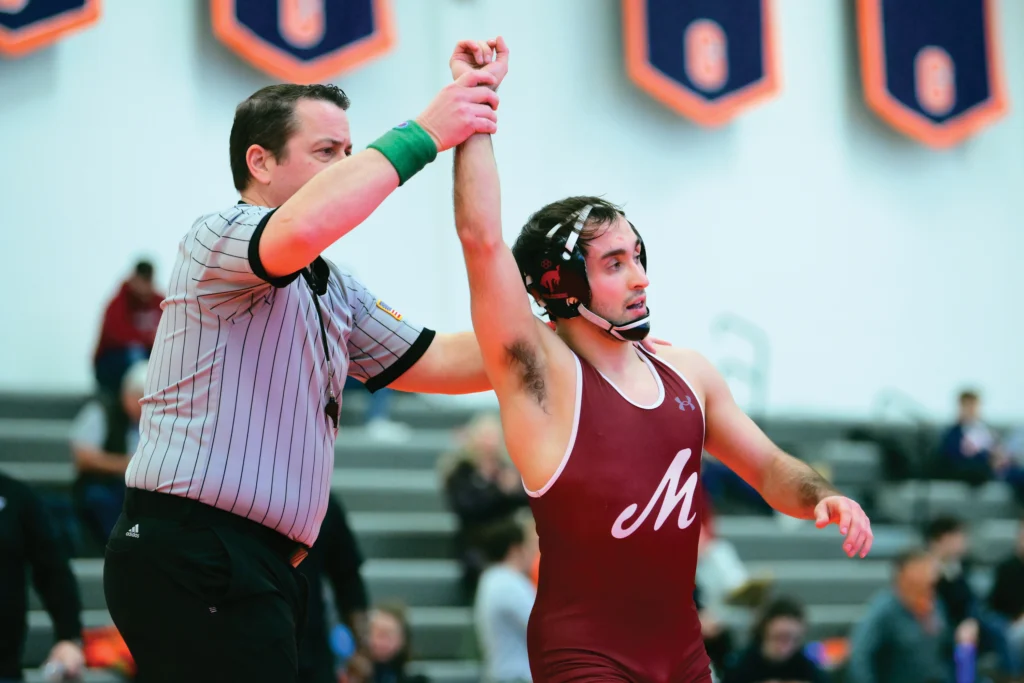
Bri Astbury ’24 G’26 was on the path to graduate school as an undergrad. A psychology major interested in sports analytics, she transferred some of the credits she earned for her statistics minor to the graduate program to complete a master’s in applied analytics (MAA) early.
Astbury’s graduate school experience is paying off in her job as a replay administrator for Major League Baseball. Based in the Replay Command Center in Manhattan, Astbury helps collect data every time there is a replay review in a MLB game — everything from the type of play, the umpires involved, the length of the review, and more. Within a couple of weeks of completing a project in data visualization in one of her Muhlenberg courses, she applied the principles to help make the data she collects for MLB more digestible.
“I chose Muhlenberg once, and I wanted to choose it again.”
—Bri Astbury ’24 G’26
Astbury considered getting her master’s at other institutions, but ultimately the MAA program and the bond she felt with her women’s soccer teammates made her want to stay. “I chose Muhlenberg once, and I wanted to choose it again,” she says.
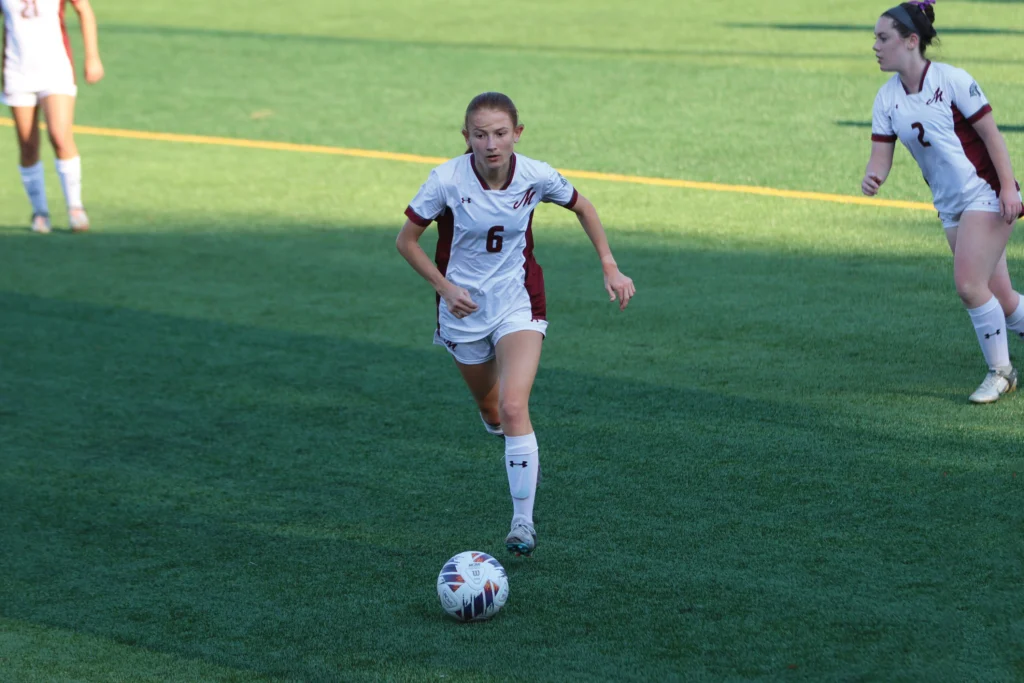
Margaux Eripret ’22 G’24 chose Muhlenberg three times. One of the first Mules to compete as a graduate student, she returned for a fifth year after losing her junior basketball season to COVID and is currently the assistant director of admissions at Muhlenberg. She began her role in August 2024 within days of completing her final MOL course.
For Eripret, a native of Allentown, the ability to live at home, play another year of basketball, and earn a master’s while exploring her postgraduate options proved to be the perfect combination. Eripret has shared her experience with prospective students.
“I have mentioned it on the road in my admissions presentations and interviews because I’ll ask students where they see themselves in five, seven years or so, and there are a lot of students that don’t know,” she says. “So while I work primarily in undergraduate admissions, it is definitely something that comes up as a long-term conversation.”

Most of the athletes whose eligibility was impacted by COVID have cycled through, but for any future Mules with the opportunity to extend their careers beyond their undergraduate days, remaining at Muhlenberg stands as a strong and viable option.
And the benefits go both ways, says Amy Filanowski, who has coached two Muhlenberg graduate students in track and field, both of whom earned All-America honors. “Grad students bring a slightly different dynamic to the team,” she says. “They tend to have a high level of maturity and clarity about their goals, and often serve as strong role models for the undergrads.”
“I would definitely say that I’m confident that I made the right decision staying at Muhlenberg to get my master’s degree and use my extra year of eligibility to play,” says Astbury. “I feel at home at Muhlenberg.”
“Grad students bring a slightly different dynamic to the team … They tend to have a high level of maturity and clarity about their goals, and often serve as strong role models for the undergrads.”
—Head Cross Country and Track and Field Coach Amy Filanowski
Mule Round Up
At the All-Atlantic Regional Track & Field Championships, javelin thrower Noel House ’24 G’26 threw a season-best 63.3 meters. He went on to place 13th at the NCAA Championships, earning All-America honors for the second straight year. The TRACK AND FIELD season also saw the all-sophomore men’s 4×100-meter relay team (Maxwell Broadbent, Bryce Rhodeman, Christopher Short, and Isaac Schaffer-Neitz, pictured) win gold at the Centennial Conference Championships with a conference-, meet-, and school-record time of 41.33 seconds. Another sophomore, Maya Richwine, was the top women’s performer, contributing to five school records during the indoor and outdoor seasons. … April 29 saw women’s lacrosse, men’s lacrosse, and softball all host and win playoff games. WOMEN’S LACROSSE toppled Ursinus to score its first CC playoff win ever and set a school record with its 14th win of the season. MEN’S LACROSSE held off Franklin & Marshall, 11-10, for its first CC playoff win ever. SOFTBALL won a playoff game for the third time in the last four years. Kaya Mahy ’25 won the CC Gold Glove award as the top defensive player in the league. … The BASEBALL team improved its record by 10 games from the 2024 season. Marc Quarrie ’27 became the first All-American in program history after hitting .404, tying the school record for home runs (11), and setting a school record with 62 runs scored. … MEN’S TENNIS ended the year with a record of 11-7, reaching double digits in wins for only the fourth time in program history.

